Resources
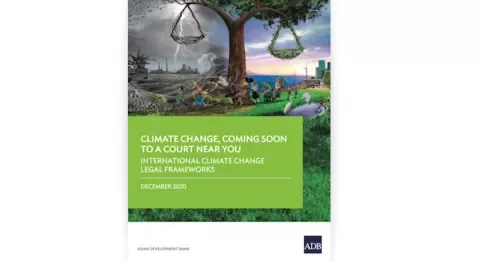
Climate Change, Coming Soon to a Court Near You: International Climate Change Legal Frameworks
Report 4 explores the Paris Agreement and the international legal framework that supports global and domestic climate action.
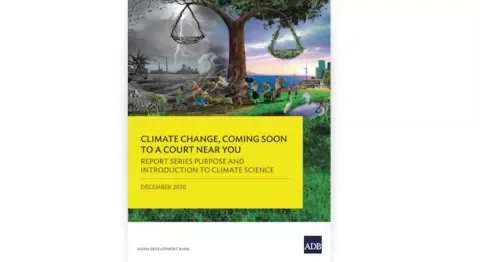
Climate Change, Coming Soon to a Court Near You: Report Series Purpose and Introduction to Climate Science
Report 1 guides readers through some of the basics about climate change as a defining challenge of our time. It further explains how judges from Asia and the Pacific contribute to climate governance and litigation.
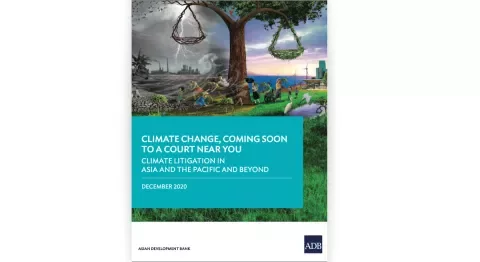
Climate Change, Coming Soon to a Court Near You: Climate Litigation in Asia and the Pacific and Beyond
Report 2 contains a comprehensive review of the growing number and variety of climate lawsuits in Asia and the Pacific. It underscores the unique flavor and voice of regional jurisprudence and compares it with global approaches.
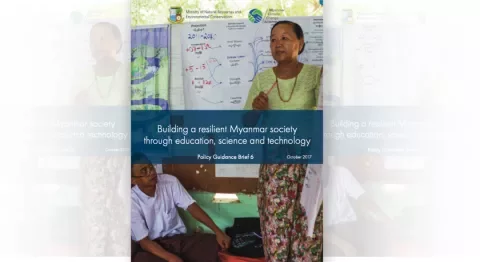
Policy Guidance Brief 6: Building a Resilient Myanmar Society through Education, Science and Technology
This Guidance Brief is intended as a guide for understanding key sectoral challenges, strategic objectives and specific actions to effectively address climate change in Myanmar. The guidance brief focuses on the pivotal role of the education, science and technology sectors in creating a knowledge-based society to drive Myanmar's inclusive and resilient economic social development.
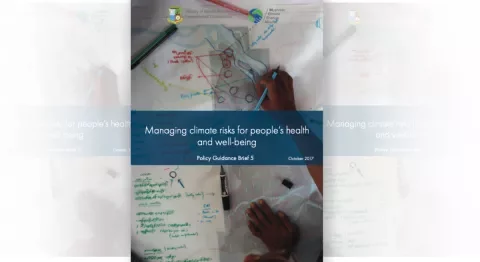
Policy Guidance Brief 5: Managing Climate Risks for People's Health and Well-being, 2017 (Myanmar)
The Guidance Brief is a tool to effectively address climate change in Myanmar by aiding the understanding of key sectoral challenges, strategic objectives and specific actions. The guidance brief deals with potential health risks from climate change including: increase of waterborne and vector-borne diseases, heat-related illnesses, injuries and deaths, food insecurity, and increased malnutrition.
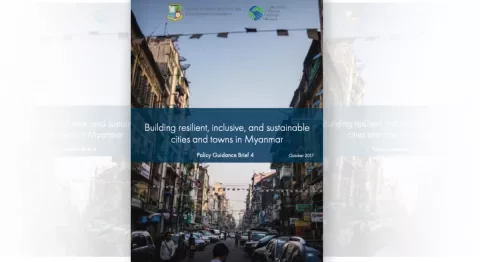
Policy Guidance Brief 4: Building Resilient, Inclusive and Sustainable Cities and Towns in Myanmar, 2017
This Guidance Brief is intended as a guide for understanding key sectoral challenges, strategic objectives and specific actions to effectively address climate change in Myanmar. Climate change is expected to have significant negative impacts on urban centers in Myanmar, including impact on urban infrastructure and services, increased rural-urban migration, enormous socio-economic costs, and health implications. Unless addressed, these impacts will impede the country’s development.
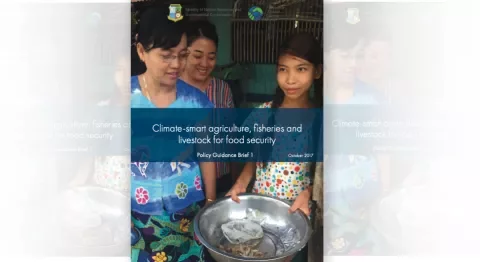
Policy Guidance Brief 1: Climate-smart Agriculture, Fisheries and Livestock for Food Security, 2017 (Myanmar)
The Guidance Brief is a tool to effectively address climate change in Myanmar by aiding the understanding of key sectoral challenges, strategic objectives and specific actions. Climate change has already challenged the agriculture sector in Myanmar by affecting rice yields and livestock production. There is an urgent need of further action to promote sustainable agriculture by adapting crop varieties and corresponding farming practices, improving water management especially in rice production, reducing greenhouse gas emissions from rice and livestock farming, promoting integrated farming systems and enhancing the capacity of farmers to respond to climate risks.
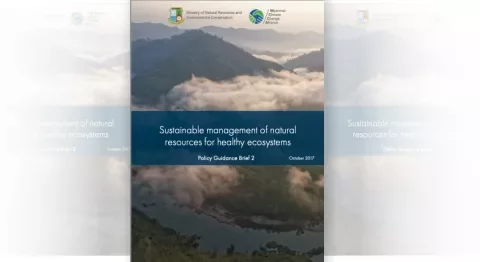
Policy Guidance Brief 2: Sustainable Management of Natural Resources for Healthy Ecosystems
The Guidance Brief is a tool to effectively address climate change in Myanmar by aiding the understanding of key sectoral challenges, strategic objectives and specific actions. The protection and rehabilitation of natural resources of Myanmar are the keys to minimize climate risk.
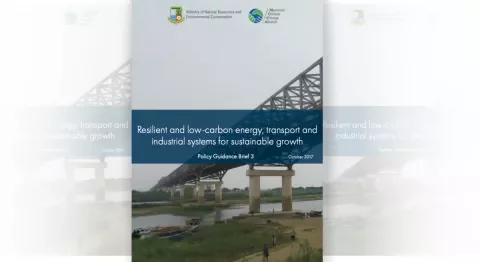
Policy Guidance Brief 3: Resilient and Low-Carbon Energy, Transport and Industrial Systems for Sustainable Growth, 2017 (Myanmar)
The Guidance Brief is a tool to effectively address climate change in Myanmar by aiding the understanding of key sectoral challenges, strategic objectives and specific actions. Limited access to electricity in the country translates to a greater risk to energy connectivity across the country in the face of climate change.
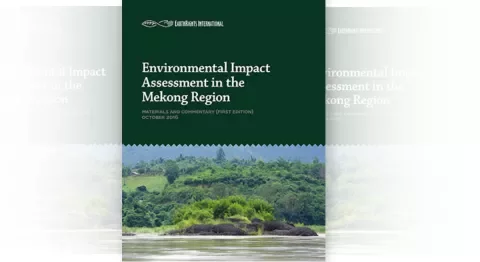
Environmental Impact Assessment in the Mekong Region
The Environmental Impact Assessment (EIA) in the Mekong Region manual is the first time that anyone has sought to bring together in one volume an analysis of the EIA systems of each of the six Mekong countries, including the common themes and approaches.